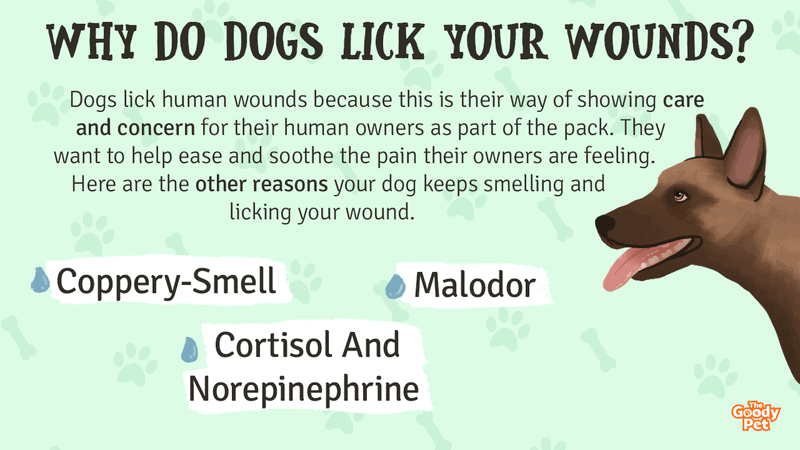Dogs have a sense of smell so keen that they can identify and sniff just about anything, even our emotions, and pain. With their sensitive scent receptors being 100,000 times more acute than humans, it is no wonder that our pet pooches are well regarded as great hunters and, of course, as companions that help us in a variety of ways.
Dogs tend to lick our wounds because they want to cure the pain that they can sense inflicted by our wounds. Dog licks do help in healing our wounds due to the curative enzymes their saliva contains. However, too much licking actually does more harm than good.
A dog’s saliva has been believed to have healing qualities since ancient times, and many cultures around the world think that they have curative powers. There is even a saying In France that goes, “a dog’s tongue is a doctor’s tongue.”
In this article, we will understand why dogs are attracted to the smell of human wounds. Plus, we’d deeply explore why wound licking helps and why too much licking does harm our health.
Why Do Dogs Lick Human Wounds?
Dogs lick human wounds because this is their way of showing care and concern for their human owners as part of the pack. They want to help ease and soothe the pain their owners are feeling.
As dogs retain their pack mentality from their wolf descendants, this licking behavior can be found in the present setting with their human family. This is part of their nature to take care of your injuries in the same manner as they will care for their own.
Therefore, whenever you have a wound in your body, whether it is just a minor cut or a large injury, your dog will instinctively detect it and try to lick it.
Animal instinct, as well as human instinct, also hard-wired our brains to cope with any dangers or threats that may harm us. By immediately cleaning and attending to our wounds, we lessen the chance of any infection that can follow.
A dog’s instinct to immediately tend to our wounds is much similar to the way a mother dog will lick their newborn pup, or a dog licks its injury.
Here are the other reasons your dog keeps smelling and licking your wound.
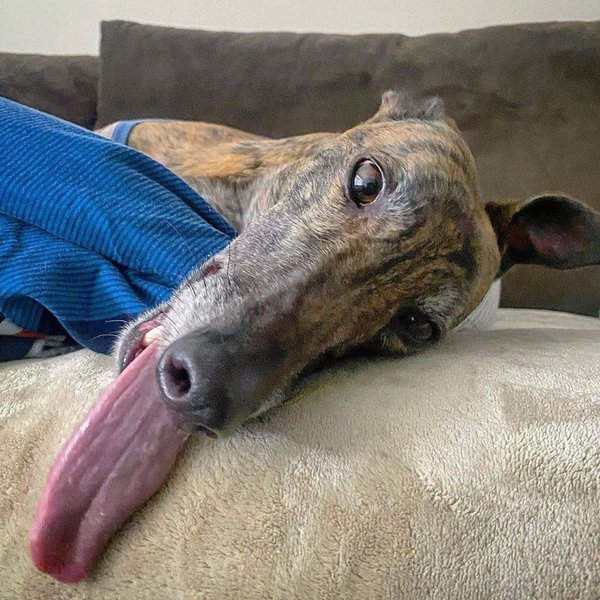
Coppery-Smell
The presence of a coppery smell in our blood is one of the reasons why your dog is able to smell your wound. The oxidation of the hemoglobin’s iron molecules reacting with the fat lipids in our skin produces this metallic smell that can attract our dogs.
Studies have shown that Eurasian wolves are attracted to a blood chemical known as trans-4,5-epoxy-(E)-2-decenal or E2D, the compound responsible for this coppery smell.
The wolves responded eagerly to this scent of E2D, proving that predators can smell and hunt by following the blood of their wounded prey. This also shows that domesticated dogs being cousins of wolves, should certainly get attracted to this smell.
Malodor
Human wounds can emit another smell called malodor, which is the result of necrotic tissue or bacterial colonization on the wound’s surface.
Certain wound dressings also emit some form of odor that results in a chemical reaction between the dressing and the wound’s secretion.
Cortisol And Norepinephrine
Our dogs can also sniff the tiniest changes in our physiology. Whenever we are wounded, we release the chemicals cortisol and norepinephrine. These are hormones that produce the “fight or flight” response in us humans, and they are powerful anti-inflammatory chemicals that prevent tissue and nerve damage related to inflammation.
Does A Dog Licking A Wound Help It Heal?
For superficial cuts, dog licking may help in protecting the wound from some bacteria but there may be some downside to it. Too much licking can lead to trauma to the wound and increased risk of infection, which in turn, slows down the overall healing process.
We have seen dogs who have wounds that are forced to wear an Elizabethan collar to prevent them from excessively licking their injury.
Is it true that your cut will heal faster if your dog licks it? What happens if your dog licks your cut? Let’s explore these questions.
Does Dog Saliva Have Healing Properties?
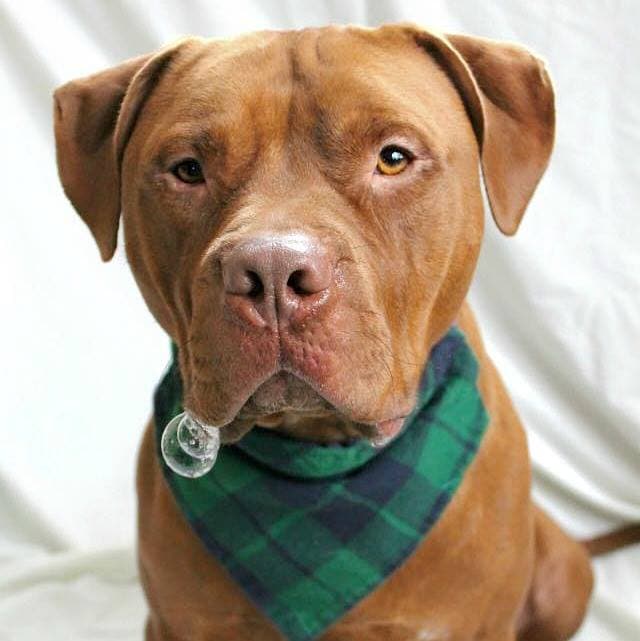
Dog saliva has healing properties but only to a certain extent. It can hinder the growth of certain bacteria and help with the healing of minor cuts.
In a study done on Labrador Retrievers and Beagles, it was found that their saliva contains many antimicrobial enzymes and peptides that destroy holes in bacterial cell membranes, thereby hindering bacterial growth.
It is also found that lactoferrin, defensins, and cystatins are present in the saliva which kills bacteria, and an antiviral compound called thrombospondin.
Nigel Benjamin, a clinical pharmacologist from St. Bartholomew’s Hospital and the London School of Medicine and Dentistry, showed that nitrite, a compound found in the saliva, breaks down into nitric oxide when it comes in contact with the skin. Nitric oxide is found to be beneficial in protecting minor cuts and scratches from bacterial infections.
Another research done at the University of Florida at Gainesville found that dog saliva has a Nerve Growth Factor (NGF) protein that heals wounds twice as fast as wounds that have not been licked. It is also studied that dog saliva inhibits the growth of the Escherichia coli bacteria but not Staphylococcus infection.
Does it mean that it’s good to allow your dog to lick an open wound? Let’s see…
What Happens If Your Dog Licks Your Cut?
Every time a dog’s tongue moves across a wound, it removes any debris and dirt from the wounded area. The added moisture of the saliva helps dirt to stick to the dog’s tongue, leaving the area “clean.” However, excessive licking can lead to trauma to the wound since the friction generated will harm the wound in the long run.
Numerous studies have shown that the adverse effects of dog licking outweigh the positive ones. A lot of anaerobic bacteria are also present inside a dog’s mouth that can be passed on to a person, like Pasteurella bacteria, which can cause life-threatening medical complications.
Hence, it is indeed not a good idea to let your pet dog lick your wound. You are better off leaving the wound to heal by itself and always covering it well to prevent your dog from licking it.
Is It Bad If My Dog Licks My Open Wound?
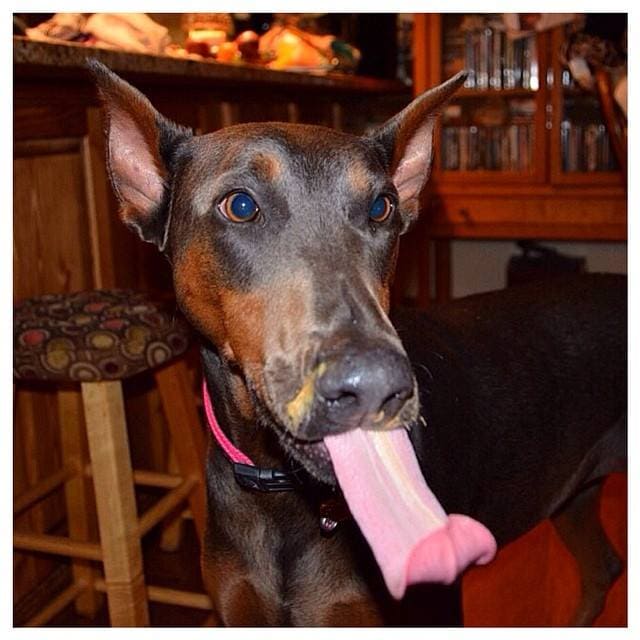
If you have a tiny scratch or cut, it can be safe for your dog to lick it for a short time, as some people have purposefully done over the years. However, if you have a big gaping wound or an infected wound, it is better not to let your dog lick it.
While the number of bacteria present in their saliva may not cause harm in their own mouths, introducing it to your open wound can cause infection and irritation. You may risk getting sicker if a dog licks your wound.
There are numerous accounts of people developing cellulitis and sepsis when a dog licked their wounds. Skin sores and ulcers will take a longer time to heal if exposed to too much canine saliva.
Let’s see the complications that happened to some people when they allowed their dogs to lick their wounds.
- Spinal infection developed by the bacteria Pasteurella dagmatis when a diabetic man was licked on his injured toe by his dog.
- A woman with a minor burn developed sepsis and necrosis because of Capnocytophaga canimorsus bacteria culminating in the loss of all her fingers, toes, and a leg.
- C. canimorsus also resulted in kidney failure due to sepsis after a man was licked by his dog on his hand wound.
- Meningitis developed when a patient with a perforated eardrum was licked on the ear, caused by Pasteurella multocida.
Will I Get Rabies If My Dog Licked My Wound?
If the dog has not been vaccinated against rabies or is infected with rabies by another dog, it can transmit rabies to you through wound licking.
However, this is rare in the United States and other developed countries, according to the Centers for Disease Control and Prevention (CDC). The rabies virus is most likely transmitted through bites from infected dogs.
Is A Dog’s Tongue Clean?
No, a dog’s tongue is not clean because it contains more than 600 types of bacteria.
According to Dr. Alexander Reiter, a professor of dentistry and oral surgery at the University of Pennsylvania in Philadelphia, the motion of licking may clean the wounded area of any debris.
However, the amount of bacteria that will enter your body through the bloodstream via a dog’s licks can be detrimental to your health.
Is Dog Saliva Harmful To Humans?
No, it is not harmful by itself but if introduced into an open wound, it can cause further problems.
Although dog saliva has antimicrobial properties, such as lysozyme and immunoglobulin proteins, the amount of unwanted bacteria in the dog’s mouth far outweighs the benefits of wound licking. It is also proven that allergy-causing proteins are present in canine saliva.
Should You Let A Dog Lick Your Wounds?
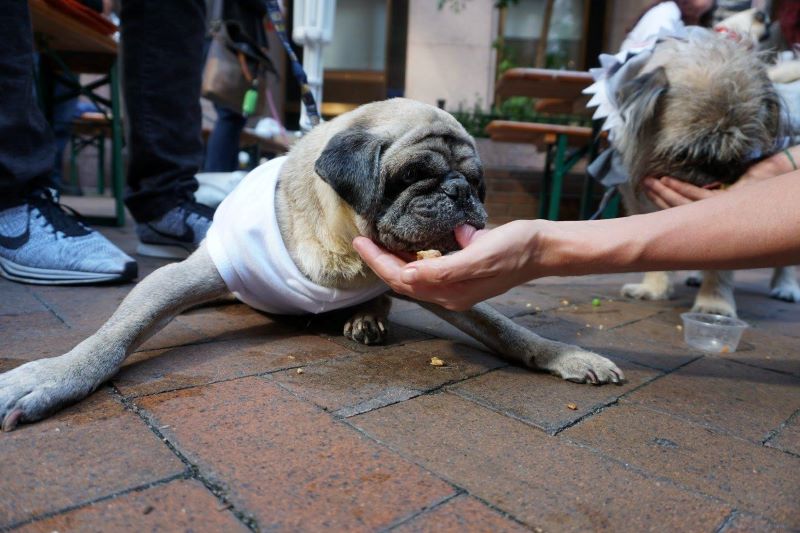
No, you should refrain from letting your dog lick your wounds. It’s bad to let your dog lick your wound because of the several diseases that can be passed on to humans if a bacterium enters the bloodstream.
Our dog’s predilection for licking everything they sniff, from rubbish from the street to drinking dirty water, can make their mouths a haven for bacteria.
In this last section, we’d share with you tips on what you should do in case your dog licks your wound. Also, since it is not okay if your dog licks your wound, what are the steps you can do to stop your dog from doing it?
What Do I Do If A Dog Licks My Wound?
The first thing to do when your dog licks your wound is to wash it with soap and water especially if the break in the skin is deep. Even people with a strong immune system should do this since you never know the amount and kind of bacteria that are present in your dog’s mouth.
The second thing to do is to look out for any warning signs that your wound may have been infected, such as redness and swelling around the wound, fever, diarrhea, vomiting, headache, and muscle or joint pain.
It is best to seek medical help immediately since it can be a sign that you contracted the Capnocytophaga or the Pasteurella bacteria.
How Do I Stop My Dog From Licking My Wounds?
The first thing to do when your dog starts licking your wound is to stand up, ignore it, and walk away. Dr. Jennifer Coates, a Doctor of Veterinary Medicine, suggests that you can go to another room and close the door behind you so your pet will not follow you. This way will lead the dog to think that it will not get any rewards from its licking behavior, which will eventually fade away.
Placing your dog inside a crate while you are tending to your wounds is also recommended especially if you have a hard time keeping fido away from your wound. This should be done with care, so your pooch will not feel it is a punishment. Providing them with toys inside the crate to make them feel comfortable is a must.
Finally, a simple “no” command or a “stop” can be your safe bet. Training your dogs to abide by some rules will let them know what the accepted behaviors around you are. It is also important to reward your dog with treats as a form of positive reinforcement, such that it remembers not to lick when commanded in the future.

